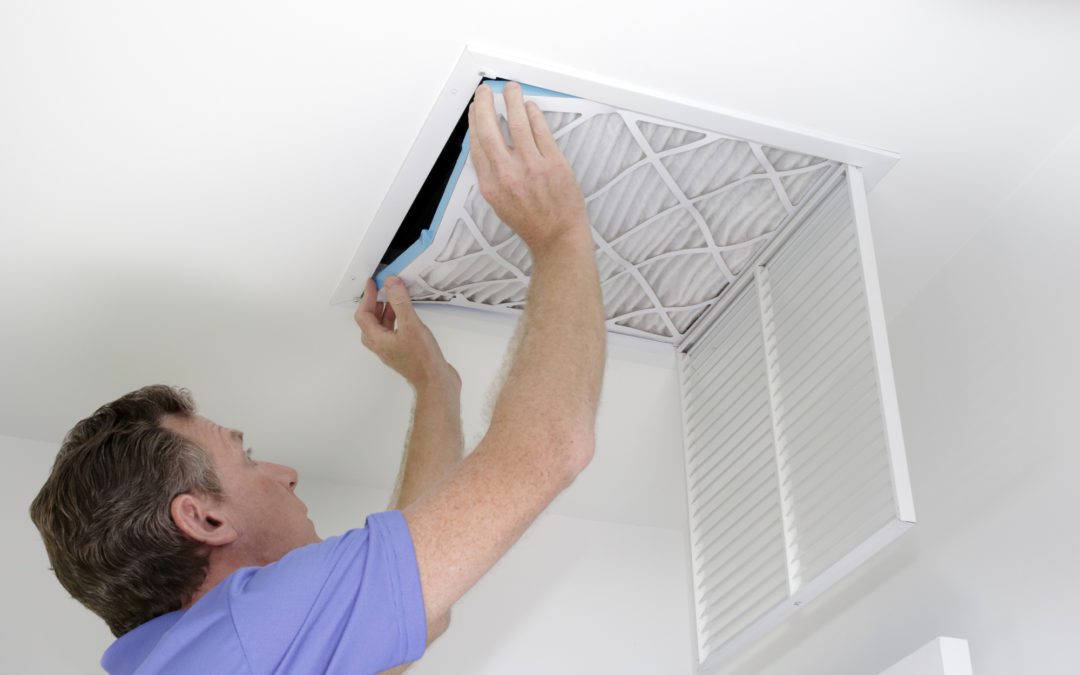Homeowners understand the amount of attention and work a building requires to maintain its condition through the years. Some of these tasks are easy to anticipate as you may service your HVAC system annually, but other issues are less clear. This begs the question; how often should you change your air filter?
An effective HVAC system is crucial for American households regardless of the season. Summer can get extremely uncomfortable, and so can winter. For this reason, you need a proper, functional system to ensure that you’re comfortable and your energy bills are relatively low. A dirty air filter can lead to inefficiencies in your HVAC system, causing you to fork out more for energy bills and other maintenance issues.
The Environmental Protection Agency recommends that you at least inspect the filter every month during peak seasons. If you find the filter dirty, it’s time for a new one. However, if there are always occupants in the home, professional HVAC technicians suggest changing the air filter every 60 to 90 days, depending on other unique factors. Bear in mind that a dirty filter will slow down the airflow and force the system to work harder to achieve optimum temperatures.
Factors That Affect the Condition of Your Air Filter
These are some of the crucial factors that harm the performance of your air filter and, in turn, your air conditioner. The frequency at which you use your HVAC system has a bearing on the filter’s condition. Living in a mild climate area means you’d only require the air conditioner for a few hours in a day, which means the filter’s lifespan can go well beyond the recommended 90 days. In this case, the filter could last for the whole season or maybe even an entire year. Conversely, if you’re constantly using the system, you should change the air filter every few weeks.
The size of your home is another determining factor regarding air filter change. In a small space, the system doesn’t have to pump extra air to achieve the desired temperature resulting in fewer filter changes. Having said that, if your system is a small one, it may contain a smaller filter that becomes dirty faster than a standard or large HVAC system. Either way, it’s best to have a professional inspect your air filters or obtain their advice about changing the filter.
While you love having pets around the home, their presence can lead to the production of dander and fur, which affects the indoor air quality. Over time, these elements are trapped in the air filter and can disrupt the airflow. If you’re adamant about having a pet indoors, consider replacing the filter after every 60 days.
Why Should You Change Your Air Filters?
If you’re a homeowner who’s still asking the question, how often should you change your air filter, perhaps it’s time to seek professional advice from a reputable HVAC company. As a result, you can obtain more information about why you must regularly change your air filters.
The Allergy and Asthma Foundation of America suggests that internal air quality is just as crucial, if not more, than outdoor air quality. Suppose an occupant suffers from allergies or asthma, the contaminants that the air filter traps can linger in the air, increasing allergies. Neglecting to change the air filter leads to runny or blocked noses and unwanted dry coughs. To relieve these symptoms and maintain a contaminate-free environment, it’s best to change the filter after two weeks with high use.
Young children are susceptible to air contaminants and can develop chronic respiratory illnesses if they don’t control their surroundings. For this reason, consider changing the air filter every two to three months.
Selecting the Ideal Air Filter
Since filters are available in various shapes and sizes, it’s difficult for homeowners to decide which is suitable. Bear in mind that acquiring cheap filters based on their price can cost you in the long term. Usually, you’d end up replacing these types of filters more often due to their inability to capture contaminants.
Additionally, HVAC experts refer to the MERV scale to determine the efficiency of an air filter. This scale refers to the Minimum Efficiency Reporting Value, which puts the air filter through a series of tests to give it a particular number. Filters with a high MERV number mean they remove the most particles from the air. Since there are 16 different categories, it’s best to have a professional select the ideal one for your system.
Pleated filters have more surface area to capture dust particles and are more costly than flat filters. Furthermore, they can restrict airflow if used with the wrong system.
If you want to save money on air filters, invest in a washable option where you can reuse one filter to ensure your HVAC system performs as it should.
There are a few considerations to bear in mind regarding an HVAC air filter, so when you’re asking how often should you change your air filter, it’s advisable to speak to a reliable HVAC company to obtain the best way forward.

